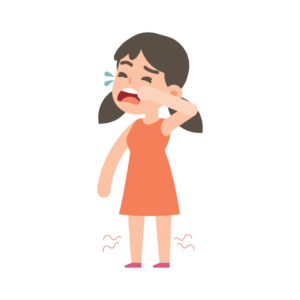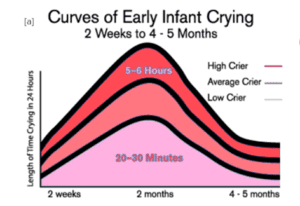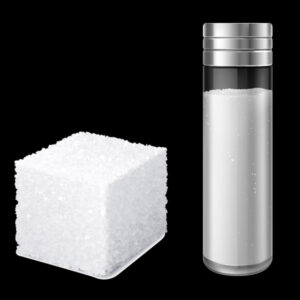
Why do young infants cry excessively and what can we do about it?
nathaniclinic1
January 26, 2018
For the newborn and the really young infant, crying is the only means of expression.
It instantly draws the attention (and anxiety!) of the caregivers. I am

hungry, I will cry, I want to pee, I will cry, I pee, I cry, I want to poo, I cry, I want some attention, I cry!
It is also a way of shutting out too much stimulation that the child is experiencing and is her way of telling her that enough is enough.
We see a lot of babies that are crying ‘excessively’ according to their caretakers. To a parent, even the slightest crying is excessive. We associate crying with discomfort, pain, or trouble and automatically presume that it is a cry for help and we immediately spring to action, trying to stop the crying. A very common scenario is the baby is bawling, anxious looks on the caregivers’ faces, the mother is crying herself and the whole family is in a tizzy!
So, is it really excessive crying?
The previous definition centered around the Rule of 3s:
- At least 3 hours a day
- At least 3 times a week
- At least 3 weeks in a row
The latest definition has changed to repeated, inconsolable, and prolonged crying without any known cause.
Crying Patterns and the change with age
Most infants start crying at around 10 days of age and the amount of crying increases gradually thereafter most children cry their maximum around two months of age. But, take heart! The crying

decreases thereafter by itself and by 5 months of age, most infants return to their baseline crying activity. There are a lot of variations among infants, though! Some cry more, and some, less. (But, every parent thinks that their child cries too much!)
Common causes of crying in infants
Hunger
The most common cause of crying. Your baby may exhibit the following signs that indicate that she is hungry.
- Fussiness
- Smacks her lips
- Turning her mouth towards your hand when you stroke her cheeks – ‘rooting reflex’
- Puts her hand in her mouth
Pooped / Peed
The degree of tolerance to a soiled diaper is variable – do it now! bears it for some time and then hollers
I am tired Mom, please help me sleep
Look for signs that your baby is ready to sleep and avoid this ‘vicious cycle’ – I am tired, I cry, I feel agitated, I feel more tired, I cry more! Your baby might yawn or become less alert. Hold your baby close, croon to her, and put her to sleep, before she starts getting cranky! Babies usually sleep between 14 – 18 hours a day.
I want to be held and comforted please! – I want to be secure
Babies yearn for their parent’s touch, their smell, the sound of their heartbeats, and their voices. Indulge your baby as much as you can – it is not possible to ‘spoil’ your baby in the first few months. If your arms need a rest put her in a front carrier or front sling across your body. The sound of the parent’s heartbeat reminds the baby of his days in the womb and that is really comforting.
Gas Issues or Colic
A major bugbear in some infants. Their tender gut cannot digest/deal with even the milk and the gas produced causes a lot of bloating. The bloating then causes colicky pain to the child and results in crying. So, if your child is fussy immediately after a feed, then your child might be having issues with colic. But first, burp your child!.
It is so hot! Or it is too cold!
You may have bundled up the baby when you took her for a walk and now she feels too hot! Or the AC has been set on too low a temperature (for the baby) and is now working at full blast. Just take the appropriate action.
Oh, God! I need a dentist!
The first tooth starts erupting anywhere between the fourth and the seventh months of age but it can happen earlier! Try feeling his gums with your finger – you may be surprised to feel a tooth ready to erupt.
I am swamped! I just cannot deal with it anymore!
Everybody is curious about and wants to play with the new baby, especially the sibling. Then there is the ubiquitous TV and the music system! Pity the child – who soon protests in the only way that she knows – by howling! Swaddling is the biggest help in this situation.
The reverse! I am bored, I want action!
Some babies just want a little excitement – take him out onto the terrace, or to the garden, or to a playground (not too noisy or you will end up with the above-mentioned issues. Try to find other mothers of babies with kids of the same age – At Nathani Clinic we have tried to form WhatsApp groups based on the age of the children that visit us – do take advantage where we discuss issues appropriate for the age of your child and keep sending out health tips like these. Even if you are not visiting Nathani Clinic – feel welcome to join by dropping us a line with your child’s name and your mobile number that has a WhatsApp account
I am sick – please make me better!
Your baby may just about be coming down with something. The first and most reliable sign is that the mother notices that “The child has an unusual cry – never does he cry like this!” For us, it is a red flag! and we immediately look for signs that there is something wrong! Check your baby’s temperature. Carefully examine the baby’s digits and genitals -especially in boys (there may be hair or fine thread entangled that is causing constriction).
Food allergies
The most common food allergy in infants is cow (bovine) milk protein allergy. In general, we recommend that you don’t feed bovine milk to an infant of any age. If your baby doesn’t accept breast feeds (the best food engineered for babies over millennia) the switch to formula feeds (the specific type will depend on the age of the infant, and if she is preterm, or if he has associated medical illnesses – consult your pediatrician).
What if it is none of the above and the baby is still crying?
I have gone through the above checklist and my baby is still crying.
- It may be wise to consult your child’s pediatrician.
- There are other ways to soothe a child crying incessantly. Read about it here.
Our Consulting Specialities
Recent Posts


Subscribe Our Newsletter
The premier children’s clinic and general vaccination center in Chembur, Mumbai
Make an Appointment
- 8 AM - 8 PM , Monday - Saturday
Call Us Today
9987084813
Online Doctor Consultation Nathani Clinic
Copyright © 2024. All rights reserved.


